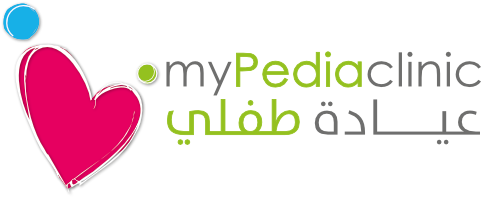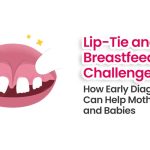So, you’ve just welcomed a newborn into your life. Congratulations! You have an exciting journey full of love and joy ahead of you. We understand that you may be feeling slightly overwhelmed and underprepared for the task of taking care of a baby, but don’t worry, most parents do. The important thing is for you to know what to expect, learn as you go, and simply do your best.
The first week of your new life you’ll be dealing with emotions aplenty, recovering from your delivery, and most importantly, you will start breastfeeding.
Many first-time moms find breastfeeding daunting and every mother’s experience is different. Some struggle more than others, such as experiencing latching problems, excessive leaking, swelling, and constant pain. But don’t worry! At myPediaclinic, our team of pediatricians in Dubai and our outstanding nutritionist stand ready to help you settle into your new role as a mother and help you tackle all your breastfeeding problems, ensuring a smooth experience for both you and your baby.
Let’s start by filling you in on what you should expect before you start breastfeeding.
1. Breast Milk Comes in 3 Stages
Milk supply does not automatically initiate after you give birth. Once your baby latches on and sucks for the first time, cells in your breast are switched on and the first stage of milk supply begins. In this stage, you will release milk known as colostrum. Colostrum is thick and yellow and contains all the vital nutrients and antibodies your baby needs.
Around the third or fourth day of birth, you will start producing and releasing what is known as transitional milk, a thinner and whiter type of milk that contains more lactose, fat, and calories.
Sometime between the tenth and fourteenth day, you will start releasing mature milk. Mature milk is thin and white, and contains all the nutrients your baby needs for healthy growth and development.
You shouldn’t worry if you don’t produce a lot of milk in the first two weeks or if the three stages happen earlier of later than usual. Like we said, it’s a different experience for every mother!
2. Latching Problems
Latching refers to how your baby’s mouth attaches to your nipples. A good latch is crucial for proper breastfeeding. Poor latching can lead to an insufficient milk supply to your baby and can lead to sore and engorged breasts, causing you pain. It is, therefore, important to get your baby to latch properly. We suggest looking for the following signs to determine whether your baby has latched on the right way:
· Your baby’s mouth should cover your nipple as well as your areola.
· Your baby’s chin and nose should both be pressed against your breast.
· Your baby’s lips should be flared outwards.
· Your baby shouldn’t be sucking their own tongue or lip.
· Your baby should be suckling not just sucking, i.e. they are getting milk from your breast. This can be identified through the sound of swallowing or gulping coming from your baby.
3. Leaking Milk
It’s natural for your breasts to leak milk throughout your breastfeeding experience. This usually happens when they’re full and it’s more common in the first few weeks of breastfeeding. Once your body gets used to it, the leaking may reduce.
4. Engorged and Sore Breasts
While your breasts are getting used to producing and releasing milk, it is common for them to become larger, firmer, and sometimes warmer, which can be a cause of discomfort for you. This is known as breast engorgement. Engorgement tends to get better once your milk producing and releasing process becomes routine for your breasts.
You may also experience sore and sensitive nipples in the first few weeks of breastfeeding. This is because your nipples will be adjusting to your baby’s latching and sucking. If the soreness persists beyond a few weeks or if your nipples get cracked or damaged, you should head over to our pediatrics clinic in Dubai for a consultation. Contact us.
5. Biting
As breastfeeding continues into the second year, you’ll find it coinciding with your baby teething, which can result in your baby biting your nipple or breast while breastfeeding. This can cause you pain and discomfort. We advise you to head over to our pediatric clinic for a consultation on how to teach your baby to not bite while feeding.
6. Refusal to Breastfeed
It’s also important for you to know that your baby may sometimes refuse to breastfeed. This is often only a temporary refusal that can be a result of an illness, change in routine, change in environment, teething, etc. Rest assured, your child will start breastfeeding in a few days.
Refusing to breastfeed a few months into the process is not a sign of your baby weaning off of breastfeeding. Some babies do wean off earlier than others but we recommend continuing to breastfeed until at least 12 months after birth.
If you’re worried your baby may be weaning off early or is not breastfeeding due to an illness, please get in touch with us.
myPediaclinic Is Here To Help
Breastfeeding is as much a feeding process as it is a bonding one. It’s your chance to connect with your baby in a meaningful way and we’re here to make sure you have a stress-free experience. Our team of nurses, pediatricians, and lactation experts is available around the clock to address any questions you may have and to help you breastfeed in the best way possible.
To know more about what to expect while breastfeeding, call us or pop in for a visit at our pediatric clinic in Dubai.
Sources:
https://www.cdc.gov/nutrition/infantandtoddlernutrition/breastfeeding/what-to-expect.html
https://www.whattoexpect.com/first-year/breastfeeding/basics/
https://www.medela.com/breastfeeding/mums-journey/support-newborn




